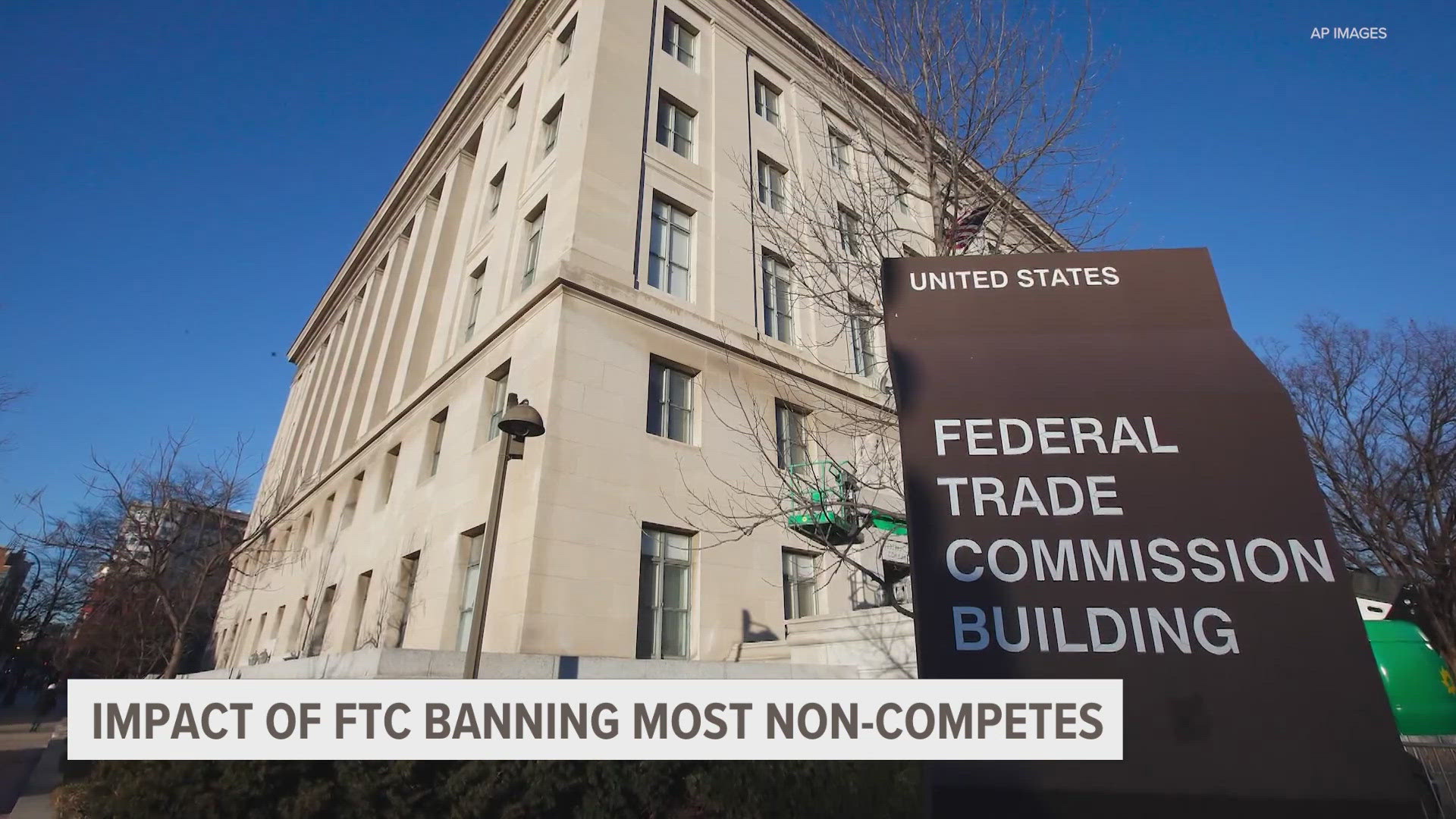GRAND RAPIDS, Michigan — From salons to sales departments and many industries across the country, Americans around the country often find that, after they leave one job, they may not be allowed to go directly to the next.
That's because of what are called non-compete agreements - those that keep people from working for a competing employer or business for a certain amount of time after they leave their current job.
"The substantive basis on which, you know, most employers seek to enforce a non-compete agreement is to preserve, you know, the goodwill and relationship that their employees have developed with their customers and preserve, you know, the economic advantage they have from their own methodology of doing things," said Mark Smith, who works as a lawyer for the West Michigan firm Rhoades McKee.
The Federal Trade Commission estimates that roughly 30 million workers in the U.S. have them.
But under a new rule passed by the FTC this week, non-compete agreements for most workers would no longer exist.
"[The rule] makes illegal all non-compete agreements for all employees in the private sector, with the exception of senior executives who earn [$151,164] and are currently subject to non-compete agreements," Smith explained.
Smith believes the effects of the rule could be swift.
"It would have an immediate impact in terms of, you know, the mobility of employees from place to place," Smith said.
"If the employees are left to their own devices, and there are no non-competes in place, I think you're going to see a lot of people chasing dollars and going from job A to job B," Smith said.
The FTC has argued the move will spur more innovation and new businesses among other potential benefits.
But not everyone is onboard. The U.S. Chamber of Commerce has already announced it will sue to stop the rule, alleging the FTC is overstepping its authority.
Given likely legal battles, Smith believes getting the rule in place may take longer than may be expected.
"If it does take effect, it would take effect 120 days from the date that is published in the Federal Register," Smith said.
"I have to say, though, that I think we are months, if not years, from this rule taking effect," Smith said.
►Make it easy to keep up to date with more stories like this. Download the 13 ON YOUR SIDE app now.
Have a news tip? Email news@13onyourside.com, visit our Facebook page or Twitter. Subscribe to our YouTube channel.
Watch 13 ON YOUR SIDE for free on Roku, Amazon Fire TV Stick, Apple TV and on your phone.

